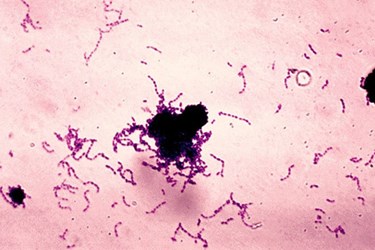Looking For Cancer In Saliva
By Joel Lindsey

Scientists at San Diego State University (SDSU) may have discovered a link between the presence of certain bacteria in saliva and pancreatic cancer.
Such a link, researchers believe, could open the door to the development of new methods for detecting cancer in its early stages.
“Our studies suggest that ratios of particular types of bacteria found in saliva may be indicative of pancreatic cancer,” Pedro Torres, who delivered a presentation about the study at the annual meeting of the American Society for Microbiology, said in a press release published recently. “Our results suggest the presence of a consistently distinct microbial profile for pancreatic cancer.”
Torres and other members of the research team at SDSU evaluated the diversity of saliva bacteria in 131 patients, some of whom had been diagnosed with pancreatic cancer, some with pancreatic disease, some with other forms of cancer, and some who were believed to be disease free. When compared to one another, the group of patients with pancreatic cancer displayed notably higher levels of two specific types of oral bacteria — Leptotrichia and Campylobacter — than any other group. The group of patients with pancreatic cancer also showed lower levels of Streptococcus, Treponema, and Veillonella.
“We may be able to detect pancreatic cancer at its early stages by taking individuals’ saliva and looking at the ratios of these bacteria,” said Torres.
Along with the research being carried out by Torres and his team, other efforts to create devices and techniques for detecting early stage cancer have been generating significant media attention recently, as various reports and studies have been announced.
A presentation at the annual meeting of the American Urological Association this week highlighted efforts to create electronic devices or chemical tests that would mimic the olfactory functions of canines to detect certain types of cancer.
Similarly, an international team of researchers based at Spain’s Institute of Photonic Sciences in Castelldefels recently announced the development of a cancer-tracking microchip device that uses nanoparticles to seek out and identify certain protein markers believed to be indicative of cancer.
Image: Streptococcus mutans
